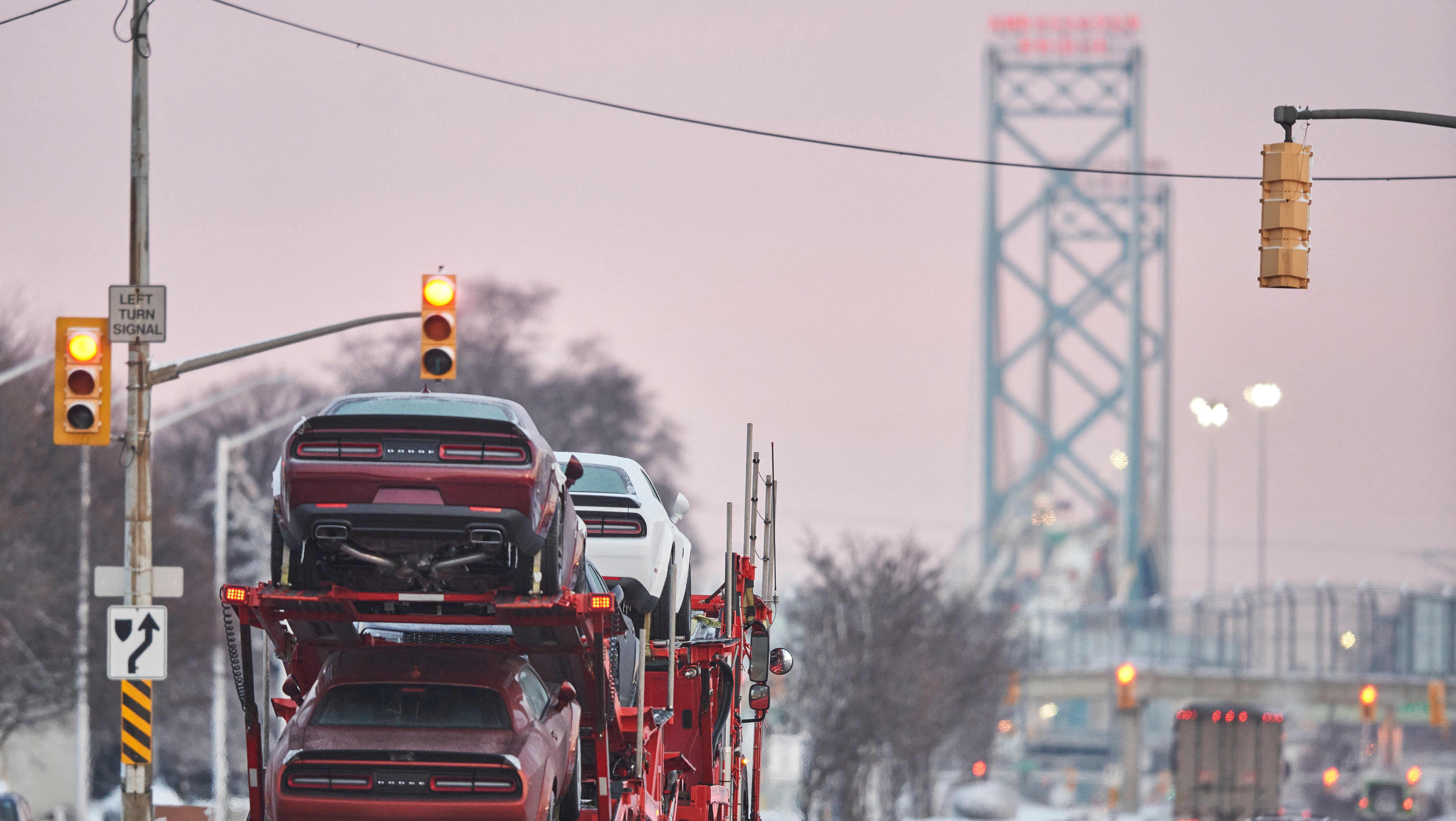Auto Industry Workers Lost $144 Million In Wages During Freedom Convoy's Border Crossing Closures
"These are real losses to the men and women working in this industry"
A consulting firm in Michigan released a report Tuesday detailing the economic impact of the border closures caused by the anti-COVID-19 vaccine mandate Freedom Convoy over the last three weeks, and the initial numbers don't lie: The Convoy hurt auto workers to the tune of $155 million, with $300 million hitting the auto industry as a whole.
These numbers come to us from the Anderson Economic Group and the Hill:
The Anderson Economic Group (AEG), a Michigan-based consulting firm, published an updated estimate on Monday that said between Feb. 7 to Feb. 15, there were lost direct wages of $144.9 million, most of which were in Michigan and the Canadian province of Ontario. Automakers, including GM, Ford, Chrysler, Honda and Toyota, lost a total of $155 million.
All combined, the auto industry lost a total of $299.9 million for that two-week time period.
"Within hours of the trade disruption at the Ambassador and Blue Water bridges, we observed shortages and then slowdowns at assembly plants. Only some of that lost production can be made up given the tightness of the auto industry's supply chain right now, so these are real losses to the men and women working in this industry," said Patrick Anderson, principal and CEO of AEG, in a statement.
Those two blockages of important border crossings were difficult to bear financially for everyone from truckers bringing in supplies to average Canadians losing out on wages and seeing prices rise.
While the blockade at the Ambassador Bridge, responsible for around 25 percent of trade between Canada and the U.S., was removed with only a few arrests and even fewer vehicles seized after a week-long closure, opening another important crossing was more dramatic. The blockade between Coutts, Alberta and Sweetgrass, Montana lasted almost two-and-a-half weeks and ended after two protesters attempted to ram a Royal Canadian Mounted Police car. Mounties ended up arresting 13 people and seizing a cachet of long guns, ammunition and body armor. A blockade that formed over the weekend on the Pacific highway between Washington State and British Columbia was also lifted Tuesday. Traffic is moving slowly through that crossing as of Wednesday.
Protester trucks remain parked around Parliament Hill Wednesday morning, however the trucks, which have been a major headache for so many Ottawans, have mainly left residential streets. You'd think this deal was struck with someone in an official capacity but you'd be wrong. Residents have former Chief of Staff for Ontario Premier Doug Ford, Dean French, to thank for the first quiet and clean air on their streets in weeks. French told the Ottawa Citizen that he negotiated the peaceful withdrawal of protesters from neighborhood streets as a private citizen. Ottawa police chief Peter Sloly resigned Tuesday over his department inept handling of the protest.
